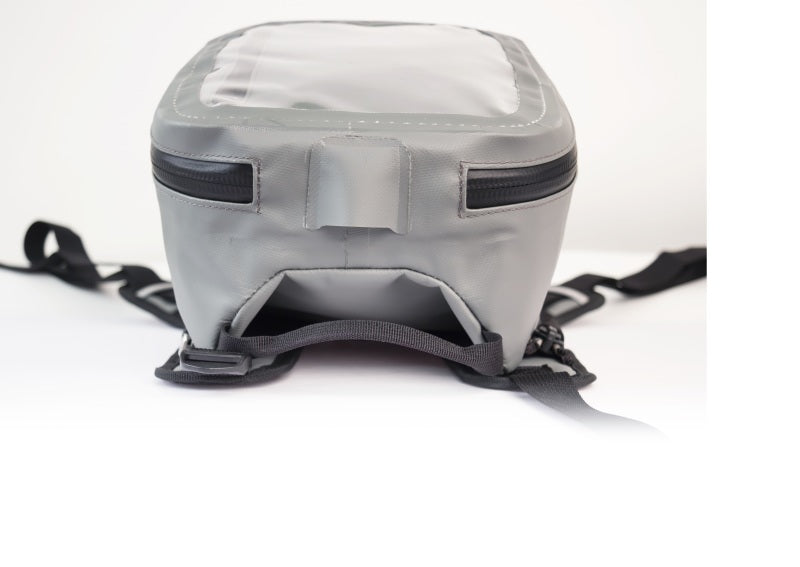Boost your car's fuel efficiency by installing a top-notch exhaust system. This system helps your engine run better by managing how fast exhaust gases leave, which also cuts down on the effort your engine needs to make.
Keep your exhaust system in good shape to make your car run more efficiently and pollute less. By using parts that let air flow freely, your engine doesn't have to work as hard, which saves you gas. Also, setting up your exhaust to release gases at the right time helps your engine perform better.
Remember, combining these engine improvements with other fuel-saving tips can really up your car's efficiency. A well-chosen exhaust system is key to making your vehicle more fuel-efficient.
Key Takeaways
- Upgrading to high-flow exhaust system reduces engine workload and fuel consumption
- Correct timing of exhaust gases improves fuel and air mixture for efficient engine operation
- Maintaining balanced backpressure ensures smooth engine performance
- Combining engine tweaks with other fuel-saving steps yields best results in fuel efficiency
- Avoid removing exhaust midpipe to prevent engine strain and increased fuel usage
Understanding Exhaust System Basics
To really get the basics of an exhaust system, it's important to know that its main job is to take away the bad gases from the engine and push them out of your car. This system is super important because it helps your car run smoothly and use fuel efficiently. It also keeps the air cleaner by cutting down on pollution. The exhaust system has several parts like the exhaust manifold, catalytic converter, resonator, muffler, and tailpipe. Each part needs to work well together to make sure your car performs well and doesn't use too much gas.
Keeping your exhaust system in good shape helps your car run better and keeps the air clean. It starts working right where the engine burns fuel to make power. Making sure every part of the exhaust system is working right is key to getting the best performance and fuel economy out of your car. Regular check-ups and fixing parts when needed are crucial to keep your car and our environment happy.
Optimizing Combustion Efficiency
To get the most out of your fuel, pay attention to these key things:
- Air-Fuel Ratio: It's super important to mix the right amount of air with fuel. This helps your engine burn the fuel completely and saves gas.
- Spark Timing: Make sure the spark plugs fire at just the right time. This helps your engine run smoothly and powerfully.
- Engine Temperature: Keep your engine not too hot and not too cold. The right temperature helps it run better and use less fuel.
- Tuning for Efficiency: Tune your engine so it works at its best. This can really help you save on gas and cut down on pollution.
Balancing Backpressure and Velocity
When tuning your car's exhaust system, it's crucial to get the right mix of backpressure and exhaust gas speed. This balance helps your engine run better and use fuel more efficiently.
Backpressure has a job to do even though it might sound like a bad thing. It helps clear out old gases and makes room for a fresh mix of air and fuel, which boosts the engine's power.
Keeping the balance right means exhaust gases can exit the engine smoothly, making your car run more powerfully without wasting fuel. A well-set exhaust system allows gases to flow out easily while keeping your engine in top shape.
Enhancing Engine Performance
Enhancing engine performance means adjusting the exhaust system to help the engine use fuel better and increase power. Here are some important tips to remember:
- Switch to a more efficient exhaust system: This helps reduce the strain on the engine, which can make your car use fuel more efficiently and boost its performance.
- Time the gas pulses right in the headers: Doing this right helps mix more air with the fuel, which can really power up your engine.
- Find the right balance between backpressure and exhaust flow: This balance is crucial for getting the most out of your engine without wasting fuel.
- Design of the exhaust affects how gases are pushed out: A good design helps clean out old gases quickly, which helps your engine perform better and save fuel.
Integrating Fuel-Saving Measures
When you want to save more fuel in your car, upgrading the exhaust system is a great start. This means replacing parts of the exhaust to help your engine work less hard, which uses less fuel. Adding headers is another good move. Headers help push out the exhaust gases more efficiently, which can help your car use gas better, giving you around 1 extra mile per gallon.
But be careful, don't just remove the exhaust midpipe as that can actually make your engine work harder and use more fuel.
To really make the most of your fuel, you can also try a few other things. Go for thinner tires, drive with low RPMs to keep the engine calm, and try to make your car lighter. All these steps together with your exhaust upgrades can really boost how far you can go on a tank of gas!
Maximizing Overall Fuel Efficiency
To get the best fuel efficiency from your vehicle, it's smart to make some changes to your engine and think about other ways to save fuel too. Let's look at four important steps:
- Upgrade Your Exhaust System: By using a high-flow exhaust system, you can reduce the work your engine has to do and help it use less fuel. This is because it lets air flow through the engine better.
- Make Your Combustion Better: If you set up the timing of the exhaust gases correctly, it helps mix the fuel and air in the engine just right. This makes your car run more efficiently and save gas.
- Keep the Backpressure Balanced: It's crucial to have the right amount of pressure in the exhaust system. This keeps your engine running smoothly and efficiently.
- Use a Comprehensive Approach: When you combine engine tweaks like upgrading your exhaust with other fuel-saving steps, you'll see the best results in fuel efficiency.
Frequently Asked Questions
What Exhaust System Improves Gas Mileage?
To get better gas mileage, upgrade your car's exhaust system. Use a high-flow catalytic converter, a good muffler, the right size tailpipe, and place the resonator correctly. These changes help your engine run better and use less fuel.
Does Having a Bigger Exhaust Use More Fuel?
A bigger exhaust doesn't always make your car use more fuel. If you get the right size exhaust and tune it well, it can actually help your car use less gas.
What Is a Good Strategy to Maximize Fuel Efficiency?
To save gas, make sure your tires are properly inflated, your car is aerodynamic, your engine is running well, and you drive carefully. These steps help your car use less fuel.
Do Exhaust Headers Improve Fuel Economy?
Yes, exhaust headers can help improve fuel economy. They make the engine run better by helping it burn fuel more efficiently and reducing strain. This can make your car use less fuel.





